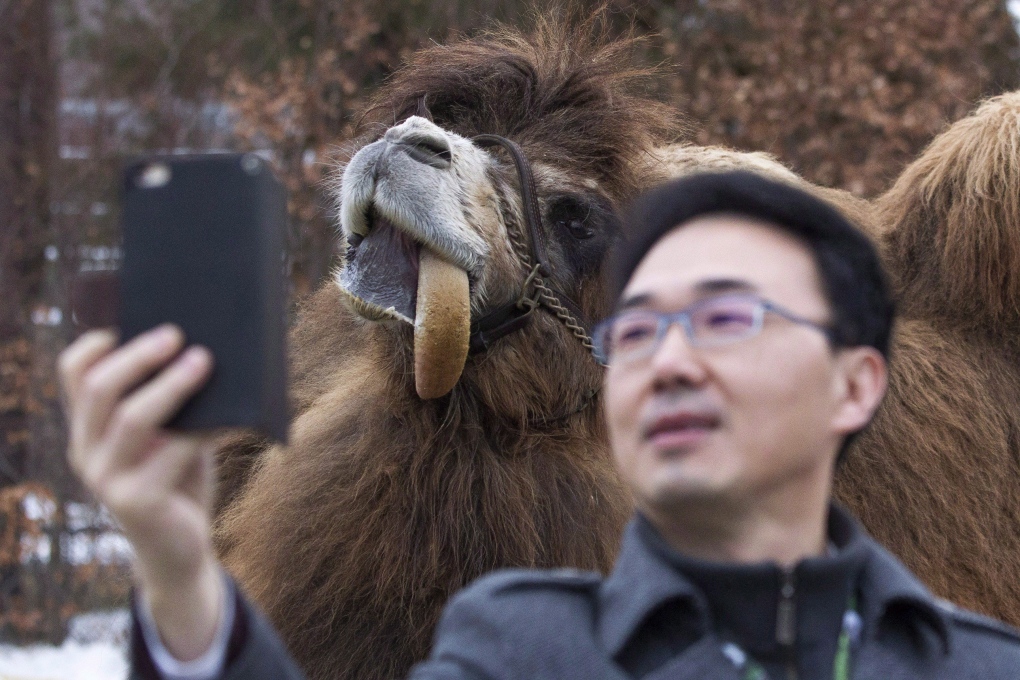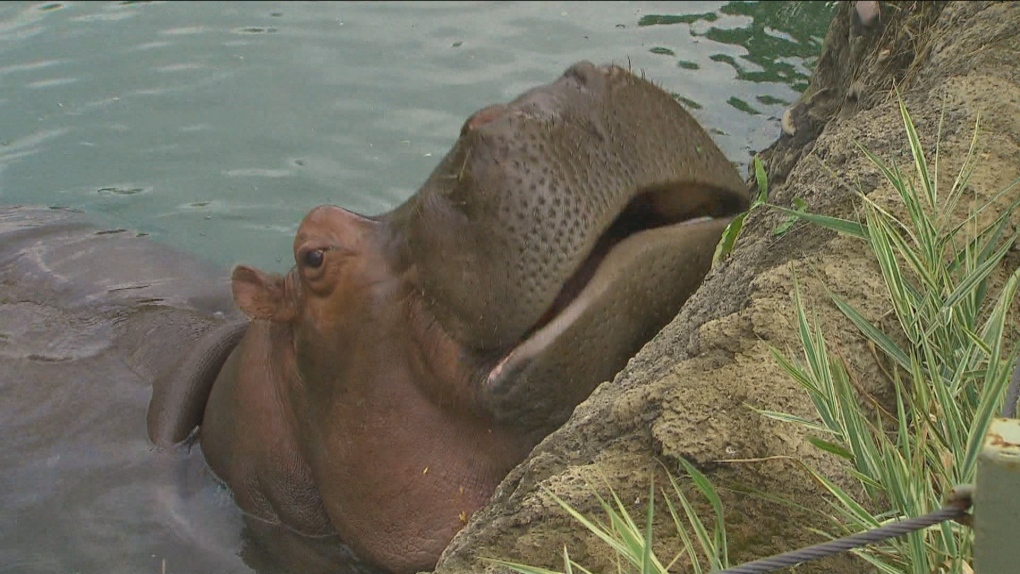Healthcare professionals can now prescribe visits to the Toronto Zoo
A visit to the Toronto Zoo may just be what the doctor ordered.
A newly launched initiative will see regulated healthcare professionals prescribing their patients a visit to the Toronto Zoo as part of their mental and physical wellness needs.
Launched on Sept. 27, it is the result of a partnership between the zoo and PaRx, an initiative of the BC Parks Foundation that has seen more than 11,000 healthcare providers give so-called “nature prescriptions” to their patients since 2020.
The Toronto Zoo is the first facility of this kind in Canada to take part in this program.
Patients who present their PaRx prescription and matching identification at the entrance gate will get 50 per cent off regular admission on the day of their visit.
 A journalist takes a selfie with Alice, a 20-year-old Bactrian Camel native to Mongolia, at the Toronto Zoo on Monday, March 7, 2016. THE CANADIAN PRESS/Chris Young
A journalist takes a selfie with Alice, a 20-year-old Bactrian Camel native to Mongolia, at the Toronto Zoo on Monday, March 7, 2016. THE CANADIAN PRESS/Chris Young
Dr. Melissa Lem, director of the park prescriptions for the BC Parks Foundation, said studies have shown that people feel better, calmer, and healthier when they spend time outside.
She said having a healthy lifestyle goes hand in hand with eating properly, exercising, and getting enough sleep.
“So from improved blood pressure to reduced rates of diabetes to better prenatal outcomes to reduce anxiety and depression in kids, the research says that spending time in nature is one of the best things that look into for our health,” she said during a news conference at the Scarborough zoo.
“And so whether that's spending time in a national park, or walking the trails and being awestruck by the animals in the Toronto Zoo. This is something that we should all be doing every single week, if not every single day.”
Lem also pointed to research about how people who are more connected to nature across its lifespan are more likely to protect it.
“As health professionals, we don't just want to prescribe nature. We also want to address those barriers to access and make it easier for patients to fill those prescriptions,” she said.
“The truth is that we would not have nearly the support and the reach that if it wasn't for partners, like the Toronto Zoo, like Parks Canada, who are working alongside us to improve connection and access and people to nature.”
Dolf DeJong, the zoo's CEO, said he’s looking forward to seeing people seeking solace from the ailments they may be experiencing by visiting the Toronto Zoo.
“And we know now more than ever connecting people to the natural world is critical to help fight biodiversity loss and climate change, as you've heard from Dr. Lam, also, their own well-being and health all these things coming together, it's part of serving a community,” he said, calling this program “an investment in people's well being and 's an investment in our community.”
“So while we started as a place that was really fun to be able to see cool animals without leaving the 416, we’re pleased to be involved to be that place of well-being and serving all those who want to come through our front door.”

THE CONNECTION BETWEEN HUMAN HEALTH AND NATURE
One of the key priorities of the BC Parks Foundation’s board is to “raise awareness around the connection between human health and nature,” which led to the creation of this innovative program, said Jennie McCaffrey, the organization’s vice-president of strategic relationships.
“It's growing very quickly across the country. It grew one province at a time with incredible physician champions that were just an amazing network of support,” she said during a news conference.
To date, the five-year-old non-profit’s nature prescription program has been endorsed by more than 100 health and parks organizations across the planet.
CTVNews.ca Top Stories

W5 Investigates A 'ticking time bomb': Inside Syria's toughest prison holding accused high-ranking ISIS members
In the last of a three-part investigation, W5's Avery Haines was given rare access to a Syrian prison, where thousands of accused high-ranking ISIS members are being held.
'Mayday!': New details emerge after Boeing plane makes emergency landing at Mirabel airport
New details suggest that there were communication issues between the pilots of a charter flight and the control tower at Montreal's Mirabel airport when a Boeing 737 made an emergency landing on Wednesday.
Federal government posts $13B deficit in first half of the fiscal year
The Finance Department says the federal deficit was $13 billion between April and September.
Weather warnings for snow, wind issued in several parts of Canada
Winter is less than a month away, but parts of Canada are already projected to see winter-like weather.
Canadian news publishers suing ChatGPT developer OpenAI
A coalition of Canadian news publishers is suing OpenAI for using news content to train its ChatGPT generative artificial intelligence system.
Cucumbers sold in Ontario, other provinces recalled over possible salmonella contamination
A U.S. company is recalling cucumbers sold in Ontario and other Canadian provinces due to possible salmonella contamination.
Nick Cannon says he's seeking help for narcissistic personality disorder
Nick Cannon has spoken out about his recent diagnosis of narcissistic personality disorder, saying 'I need help.'
BREAKING Supreme Court affirms constitutionality of B.C. law on opioid health costs recovery
Canada's top court has affirmed the constitutionality of a law that would allow British Columbia to pursue a class-action lawsuit against opioid providers on behalf of other provinces, the territories and the federal government.
Real GDP per capita declines for 6th consecutive quarter, household savings rise
Statistics Canada says the economy grew at an annualized pace of one per cent during the third quarter, in line with economists' expectations.

































